Taking stock: Multiple perspectives on pro-Palestinian protests
Activists and administrations from Halifax to Nanaimo review policies after this spring’s pro-Palestinian encampments.
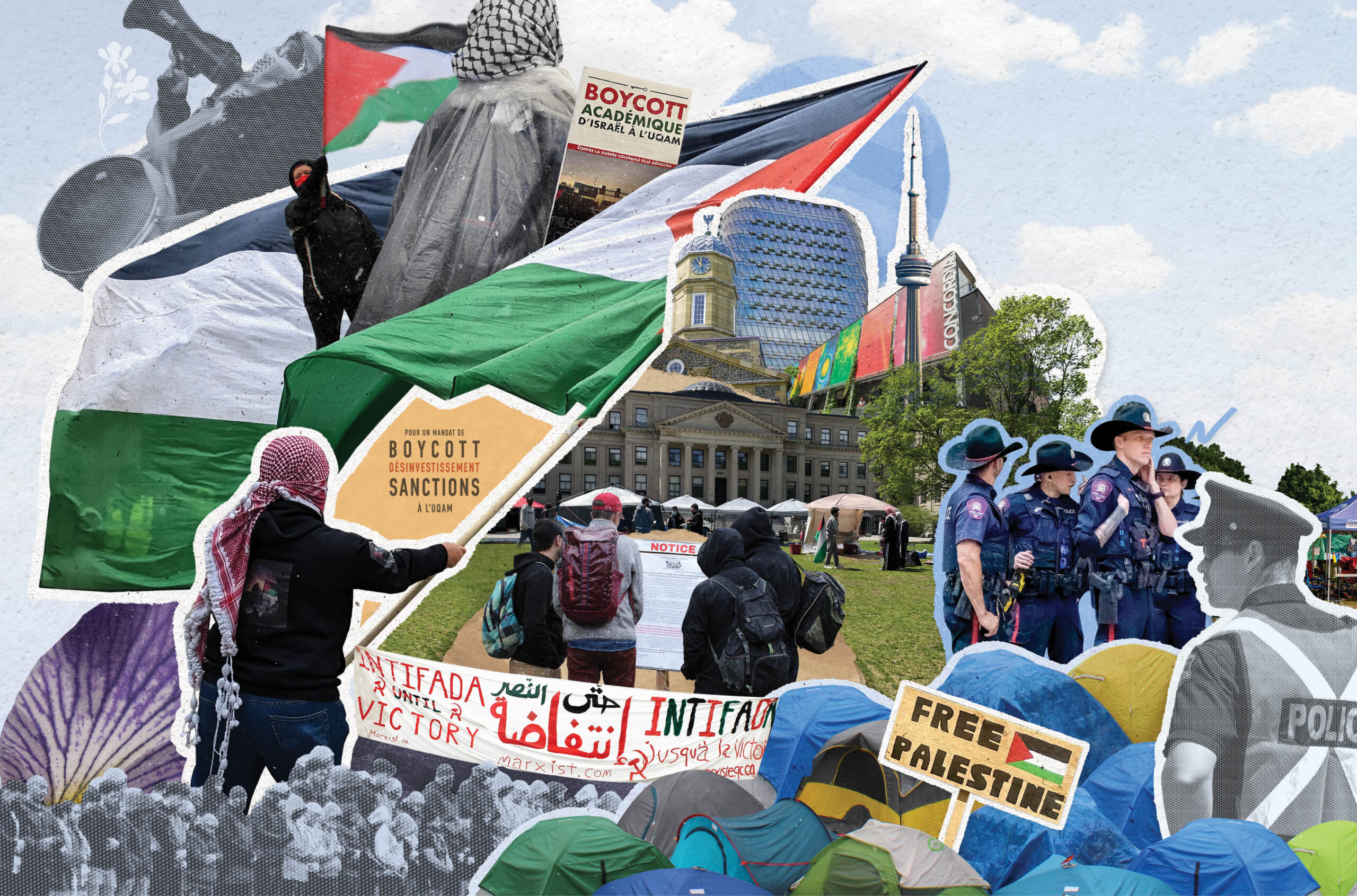
As the impact of the Israel-Gaza war continues to be felt with increasing intensity, demonstrations in support of Palestine have recently re-emerged on some Canadian campuses, notably at Concordia University. Amid renewed campus protest, it is an auspicious moment to take stock of last spring’s demonstrations when students across the country set up pro-Palestinian encampments on campuses from Nanaimo to Halifax.
When students set up a pro-Palestinian encampment on McGill University grounds on April 27, 2024, they sparked a fire that spread rapidly to other campuses. University administrations were suddenly confronted with a new kind of protest movement.
The encampment on The University of British Columbia’s Okanagan campus (UBC) was set up on May 13 and voluntarily dismantled on July 1. “We set out to protest for a day or two, but we were joined by a lot of people who supported our cause,” says May Lim, one of the organizers. “The encampment wound up lasting several weeks.”
Protesters’ demands at UBC closely aligned with demands from encampments across the country. They asked the university to divest from businesses contributing to human rights violations of Palestinians, cut ties with Israeli universities, and explicitly condemn the genocide and scholasticide — the systematic destruction of the education system — which they noted was ongoing in Gaza. The protesters also called for universities to support the Palestinian right of return. According to the Hamas-led health authority, as of Dec.3, 2024, Israeli military action in Gaza has killed more than 44,500 people.
Roberta Lexier, associate professor in general education and humanities departments at Mount Royal University, is a specialist in social movements. She has a theory about why the conflict in Gaza mobilized so many students. “The Canadian government counts Israel as an ally, and Israeli universities maintain relationships with several Canadian institutions,” she notes. “Students can direct very concrete demands to their own university, which promotes activist engagement.”
Campuses divided
Several Canadian universities swiftly expressed their support for Ukraine after it was invaded by Russia, but the Gaza crisis evokes greater discomfort because of the deeper divisions it carves across campus. Administrations have thus remained neutral — a stance activists condemn.
“Within two months of the Russian invasion of Ukraine, UBC cut institutional ties with all Russian public institutions,” says Ms. Lim. “But when it comes to Israel, the same administration says it must remain neutral.”
There is always a risk of student tension, conflict and misconduct on campuses. On Nov. 8, 2023, Concordia University was the scene of a clash between groups supporting Palestinian and Israeli causes, with the latter calling for the return of hostages being held by Hamas. Three people were injured on campus and one was arrested.
The actions and language of certain pro-Palestinian protesters concerned and upset many Jewish members of several university communities, who felt targeted and threatened. Some activists and student associations have made public statements glorifying Hamas during the protest movement, even defending the terrible carnage of Oct. 7, 2023.
On that date, Hamas and its allies killed 1,200 people in Israel, including hundreds of civilians, committed several acts of sexual violence and took 251 hostages. At York University, some student associations publicly called this a “justified and necessary” attack representing a “strong act of resistance.” The university was quick to condemn these statements, which it found unacceptable.
The popular slogan “From the river to the sea” – which was prominent during the encampments – also provokes tensions. To pro-Palestinian protesters, this phrase describes everything Palestinians need to live in freedom and with their human rights protected. Some Jewish groups, meanwhile, regard it as a call for the destruction of Israel and the establishment of an Arab state between the Jordan River and the Mediterranean Sea. Notably, this latter is what Hamas stands for.
As a consequence, Jewish students found these encampments on their campuses difficult to bear. The McGill Jewish Law Students’ Association openly denounced the encampment at their institution. “These violent anti-Semitic encampments had no right to be on this campus,” says association president Sam Benzaquen. “Some of them said loud and clear that Jews should go back to Europe or Iraq. They hanged an effigy of Benjamin Netanyahu. They blocked access to buildings. Jewish students didn’t feel safe coming to class on their own campus.”
Jay Solomon, a spokesperson for Hillel Ontario, agrees wholeheartedly. Hillel Canada, active in nine universities across the country, provides numerous services, including a helpline where students can report incidents of anti-Semitism. Some students at certain universities campaigned to have Hillel services removed.
“Since the Oct. 7 attack, the Jewish community has endured increased rates of harassment, anti-Semitism, intimidation, and calls to violence,” says Mr. Solomon. “In Canada, Jewish students are particularly affected.” Hillel denounces calls to expel “Zionists” from campuses, the blocking of McGill’s Bronfman building, and the masked activists who targeted the Hillel Concordia meeting room.
Diversified encampments
Pro-Palestinian protesters see things from a different point of view. They feel that accusations of anti-Semitism have been blown out of proportion to silence their demands. “The question for us isn’t whether someone is Jewish or Arab, but if they’re concerned about the genocide being committed in Gaza,” says Ms. Lim. “Several members of our encampment were Jewish. There is a lot of misinformation that leads people to believe we want to kick Jewish people out of Israel or something like that, but it’s not true.”
Jewish activists were involved with pro-Palestinian encampments from their inception. That includes Independent Jewish Voices Canada (IJV Canada), which supports the Boycott, Divestment and Sanctions (BDS) movement widely advocated for in the pro-Palestinian encampments. The BDS movement stated aims are to end Israel’s “occupation and colonization of all Arab lands” and to drain Israel’s financial support so Palestinian refugees can return to their homes.
“One of the values at the heart of Jewish ethics is the idea of B’tselem Elohim — that all human beings were created in the image of God and all lives have equal value and are sacred,” explains Iso Setel, interim communications coordinator with IJV Canada. “I completely reject the idea that recognizing the humanity of Palestinians and their right to live in peace could be threatening or anti-Semitic.”
“These establishments increasingly view themselves as brands to protect and consider their campuses like private property rather than public spaces where protest is legitimate.”
For Ms. Setel, there is a difference between being threatened and feeling politically uncomfortable. “Personally, I think the encampments were very positive, interconfessional spaces. Before the encampments, I’d never observed Sabbath at the same time and in the same place as Muslims responded to a call to prayer. This is a movement that defends the rights of Palestinians.”
Yousef A., a Palestinian student with Students for the Liberation of Palestine – Kjipuktuk (Halifax), helped organize the encampment at Dalhousie University. He says there were more Jewish supporters than Muslims in the encampment’s early days. He prefers to remain anonymous out of fear of reprisal. “Our camp was pacifist, but Israeli students and white supremacists harassed us,” he says. “We had to set up night-and-day surveillance to protect activists.”
He clarifies that the movement is not anti-Jewish, but anti-Zionist. “People who support Israel have the right to express their position, but we also have the right to protest and express ourselves on campus,” he says. Use of the term “anti-Zionist” provoked heated debate between the parties for and against the encampments. For some, this term denies Israel’s right to exist. For others, it signifies opposition to the state of Israel’s policies — for example, the colonization of Palestinian territory.
A soft touch vs. bringing down the hammer
University administrations have found it challenging to protect free speech while upholding an atmosphere of safety for everyone, regardless of origins, religious beliefs, or political views. It is such a sensitive subject that almost all of the institutions we contacted refused our requests for interviews.
Universities have also been under political pressure. The premiers of Ontario and Quebec both called for encampments to be dismantled, while the premier of Alberta stated she was pleased with the swift intervention by police.
In most cases, the reasons university administrations opposed the encampments were based on concerns about safety and private property, rather than political ideas. Some asked police or security firms to dismantle the encampments or keep a close eye on them. “Generally, university administrations prefer handling this type of student movement internally,” says Dr. Lexier. “This time, they took a tougher stance by turning to the courts or to police.”
To Dr. Lexier, this marks a significant departure. “These establishments increasingly view themselves as brands to protect and consider their campuses like private property rather than public spaces where protest is legitimate,” she says. Universities have also tended to intervene faster to quell pro-Palestinian debate than they have on other subjects.
At the University of Calgary and University of Alberta, the encampments were met with swift responses. These two universities immediately made it clear that protesters were breaking establishment rules by setting up a permanent structure, and that encampments were considered illegal trespassing on private property. Police intervened in both cases to forcibly dismantle the encampments, neither of which lasted a full two days.
The Université du Québec à Montréal (UQAM), meanwhile, chose a path of dialogue. The only time the university petitioned the courts was to ensure protesters followed certain safety measures. “In terms of politics, we were committed to reaching an agreement,” says UQAM President Stéphane Pallage.
He met with protesters during the very first week that the encampment was set up. They discussed safety concerns, and he listened to their demands. On May 27, UQAM obtained a Superior Court injunction that required certain safety measures to be applied. Negotiation followed from there. Members of administration, unions, and the student body, as well as the director of student life services, were involved in the negotiations. Student life services also maintained a daily dialogue with the activists.
“There are many perspectives on this subject in the university community, and we wanted that to be reflected in our discussions,” says Dr. Pallage. “I also met with Jewish organizations who expressed their own concerns and made their own requests.”
Dr. Pallage says he aimed to protect the right to demonstrate but drew the line at racist language and violence. He stopped the distribution of publications considered hateful and anti-Semitic after they were left in the offices of professors whose names sounded Jewish or who were perceived as supporters of Israel. Student life services also asked protesters to remove posters with the slogan, “Intifada until victory!”
“Personally, I think the encampments were very positive, interconfessional spaces. Before the encampments, I’d never observed Sabbath at the same time and in the same place as Muslims responded to a call to prayer.”
On May 29, UQAM adopted a resolution calling for an immediate ceasefire, condemning all attacks on higher education institutions in Palestine, and pledging to work to welcome Palestinian students. The resolution also urged the Fondation de l’UQAM to transparently demonstrate that it does not directly invest in funds or companies that profit from weapons sales. The encampment, which was established on May 12, was voluntarily dismantled on June 6.
“A university should promote peace and respectful debate,” says Dr. Pallage. “People should be able to express their opinions, but we should firmly intervene when speech slides toward violence or hatred.”
Liberty and security
Other universities also engaged protesters in dialogue, but some simultaneously acted to force them to abandon their encampments. Students found this double-sided approach frustrating. “The university spent several weeks claiming to defend our right to protest, but its approach varied from day to day,” says Yousef A. “[Dalhousie] cut electricity to the encampment and barred access to bathrooms, then called the police. It decided it would force us to leave before the new term started.”
Mariam Knakriah, president of Dalhousie’s student union, is also unhappy with the way events unfolded. “Calling for police intervention does not respect students’ right to express themselves and to protest peacefully,” she says. “It violates the principles of equity, diversity and inclusion that the university claims to defend.”
Ms. Lim feels the situation was similar at UBC. “The administration didn’t file for an injunction against us, but there was a lot of police harassment of students in the encampment or during peaceful protests,” she says. “I think the university wanted to force us out while keeping its reputation intact.”
Matthew Ramsey, UBC’s interim senior director of media relations, maintained in an email that the university “respected the right to free speech and peaceful protest, but also made sure that the safety of our community as a whole was the top priority.” The university’s approach was based on “respectful dialogue and a measured response.”
McGill, meanwhile, was involved in several legal battles, most notably an injunction request to dismantle the pro-Palestinian encampment. The Superior Court rejected the request on May 15. The Students’ Society of McGill University (SSMU) spoke at the tribunal: “We didn’t want a decision against the protesters to weaken the right to on-campus protest in the future for any cause,” says Dimitry Taylor, who was president of the SSMU during the encampment.
The Canadian Association of University Teachers defended students’ right to protest for similar reasons, citing academic freedom and free speech. The association testified in court against the University of Toronto’s injunction request, which sought to dismantle the encampment on U of T grounds. It also opposed police intervention in the encampments.
A stronger movement
Activists and administrations are now taking stock. “I think we successfully raised awareness for the Palestinian cause,” says Yousef A. “At the outset, people gathered mainly to advocate for a ceasefire in Gaza, but they eventually came to embrace the Palestinian cause more broadly.”
Ms. Lim says administration would never have engaged in dialogue with pro-Palestinian protesters or made concessions if not for the encampments. “Encampments in Canada, the U.S., and elsewhere showed Gazans that they are not alone,” she says. “We became a gathering place and a source of comfort for the Palestinian community in Vancouver, who is very affected by what’s happening in Gaza.” She added that students learned to work together, and that the movement is now stronger.
“Big change takes time. It took decades to topple apartheid in South Africa. Students played a major role in those social movements,” Dr. Lexier says. “Protest strategies will evolve, but I don’t think that the pro-Palestinian movement can be so easily pushed aside.”
Featured Jobs
- Soil Physics - Assistant ProfessorUniversity of Saskatchewan
- Human Rights - Assistant Professor (Expertise in Peace & Conflict Studies, Socioeconomic Rights and/or Indigenous Rights)University of Winnipeg
- Canada Impact+ Research ChairInstitut national de la recherche scientifique (INRS)
- Engineering - Assistant Professor, Teaching-Focused (Surface and Underground Mining)Queen's University
- Anthropology of Infrastructures - Faculty PositionUniversité Laval


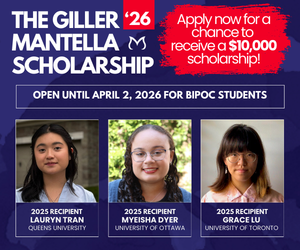

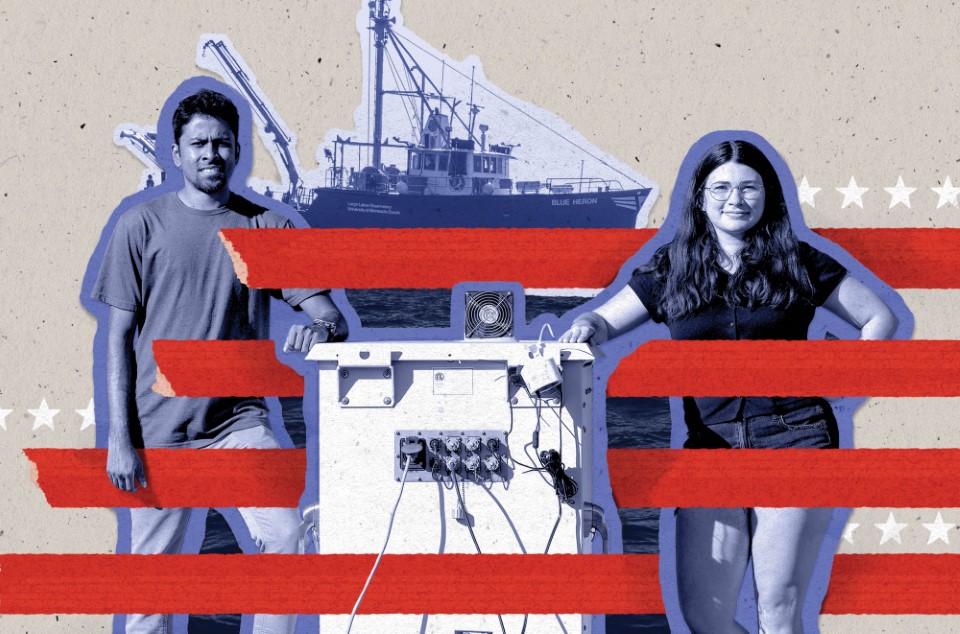



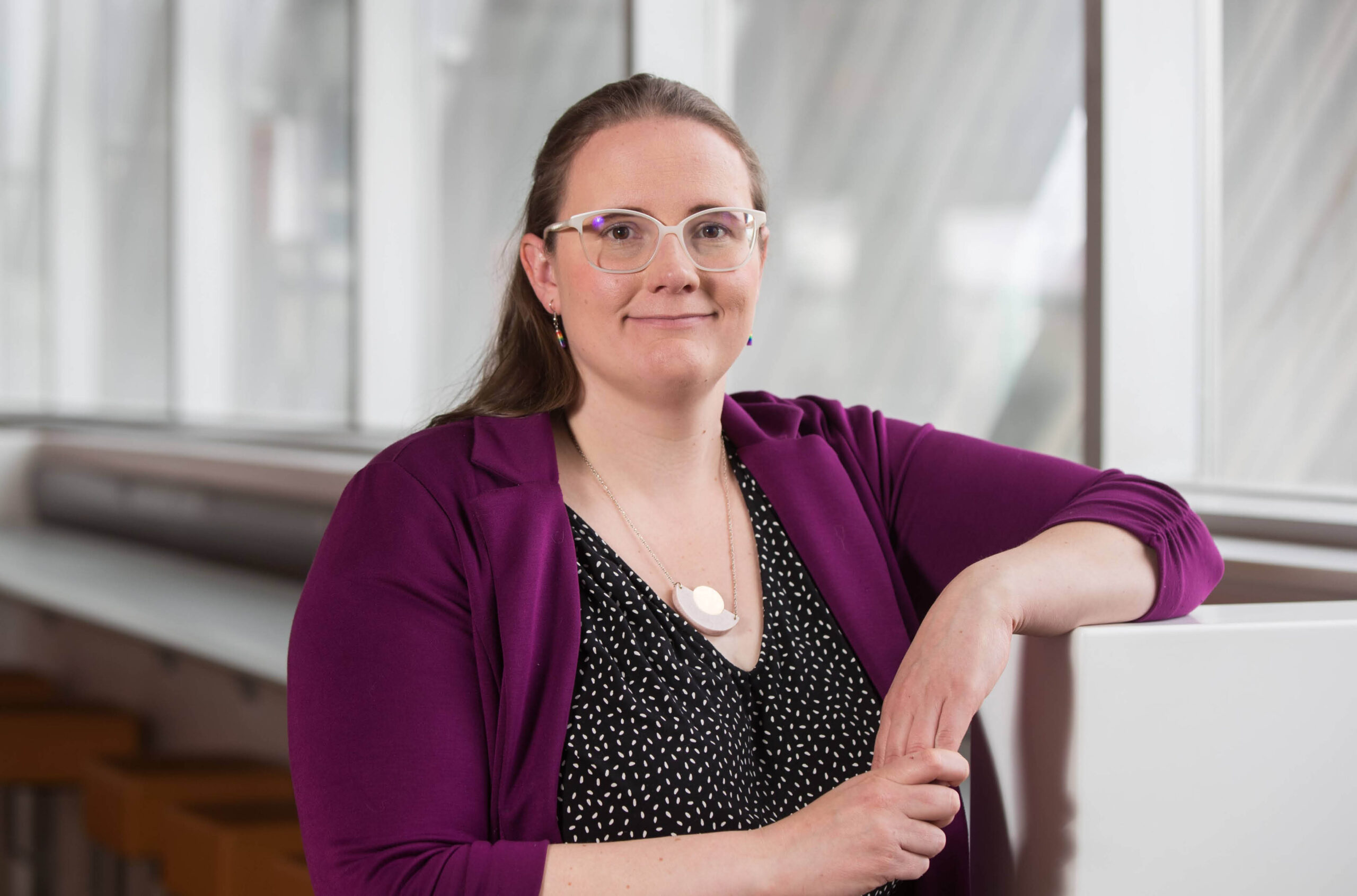

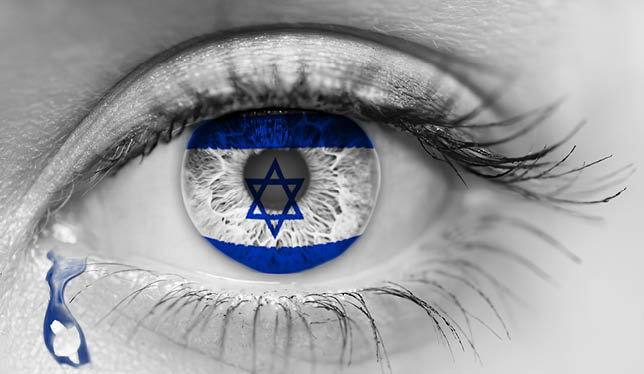
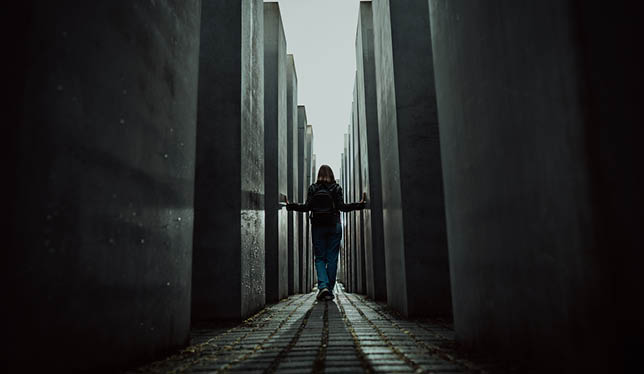
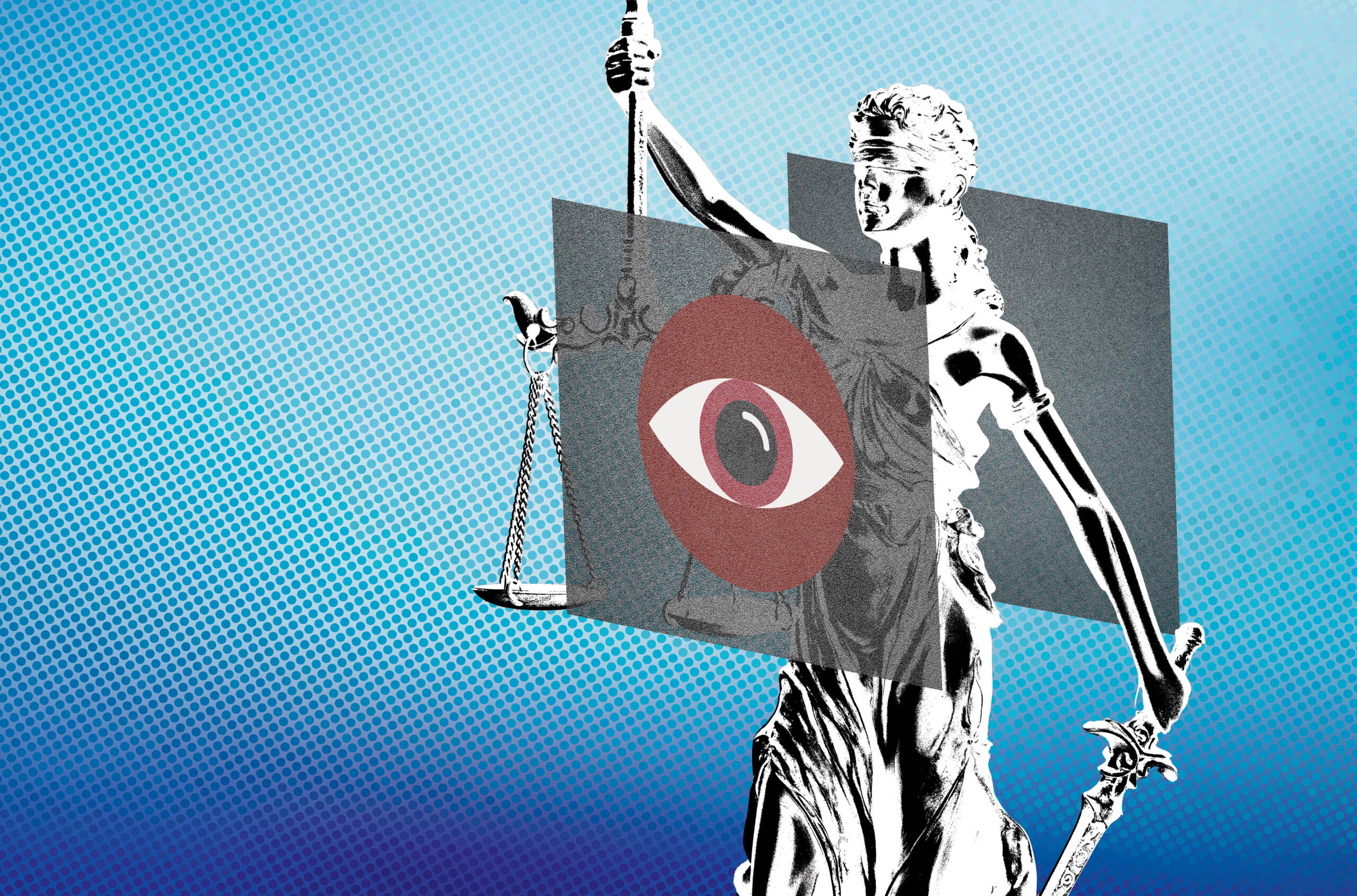
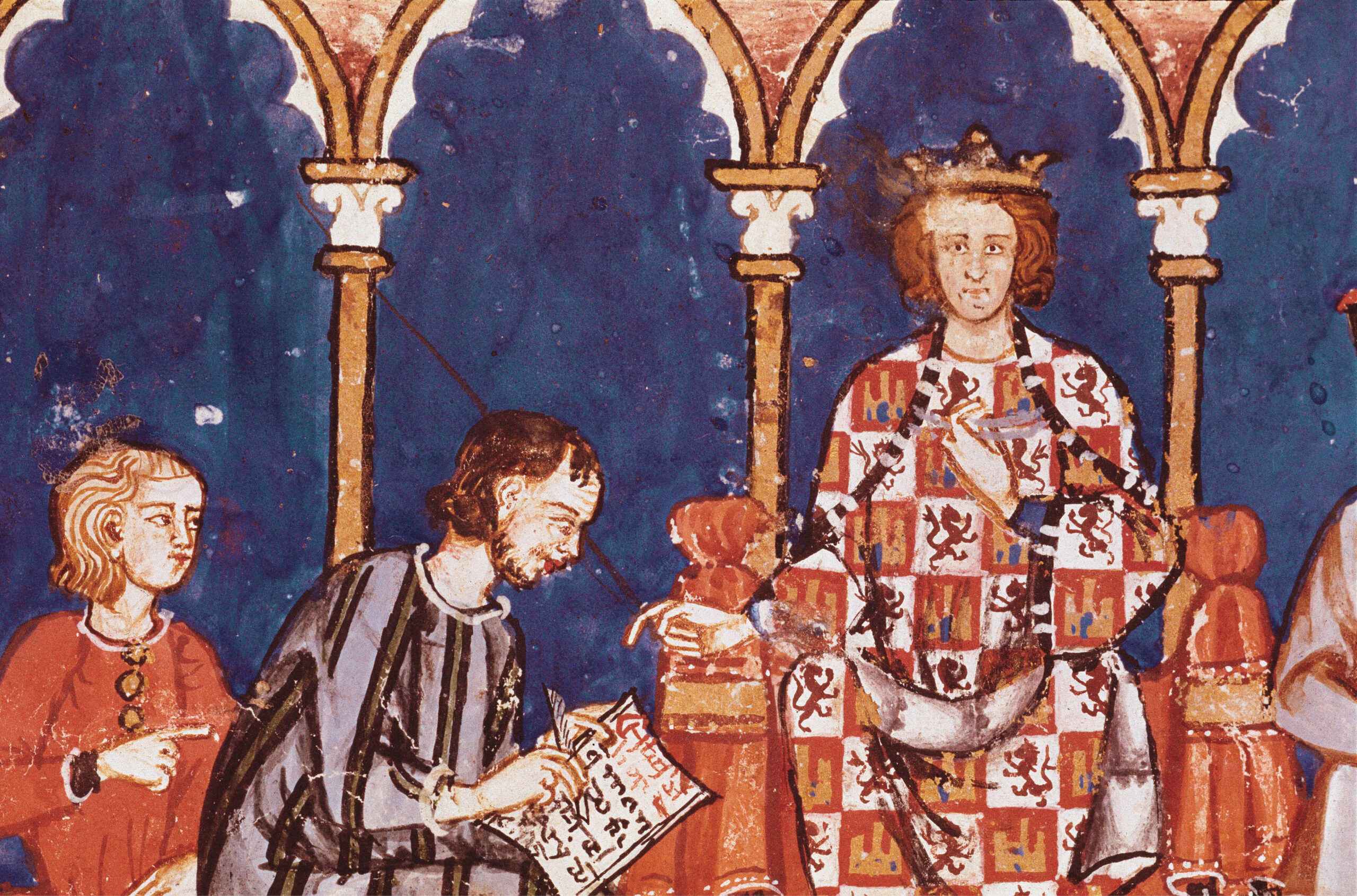


Post a comment
University Affairs moderates all comments according to the following guidelines. If approved, comments generally appear within one business day. We may republish particularly insightful remarks in our print edition or elsewhere.